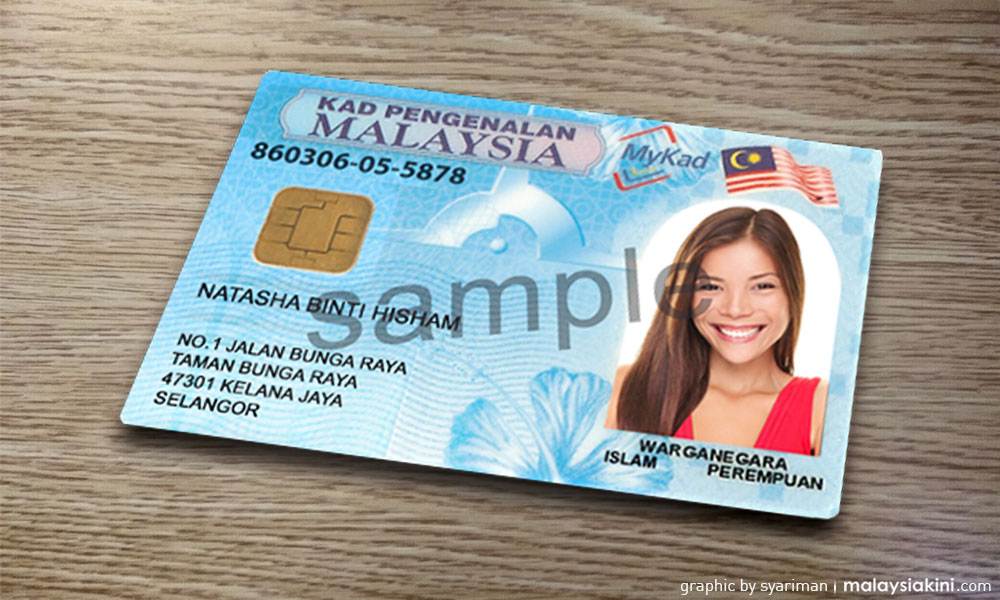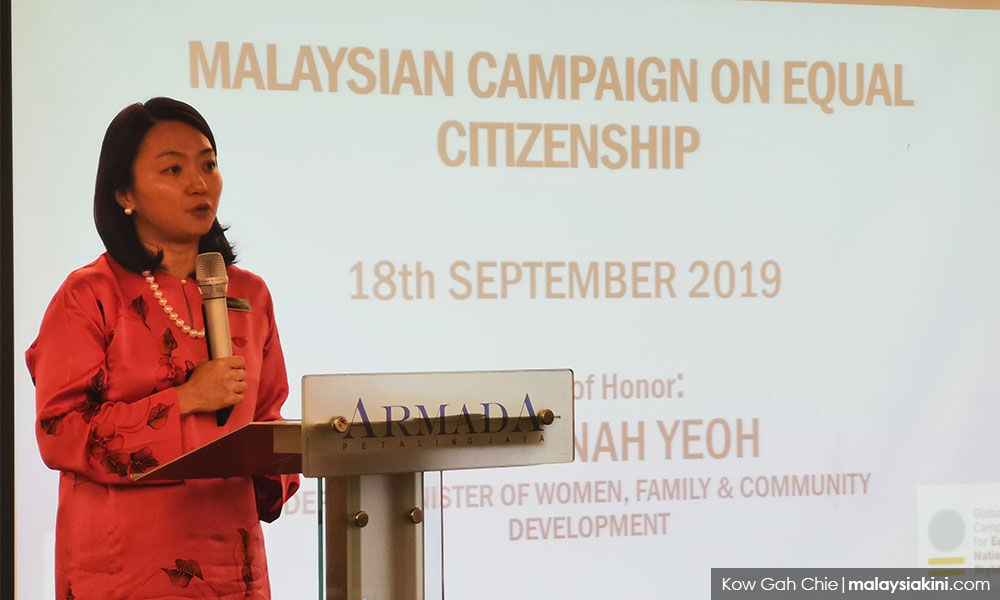
A man I know is trying to do something kind. For the past few years he has been looking after two bright children who have been abandoned by their neglectful parents.
Their mother was previously married, but she left her husband without any official split up. She then began a relationship with a man 10 years younger and the pair had two children before they too broke apart.
As the couple was not married (to each other) at the time of the births, the woman made a decision that has ramifications for her children to this day. She used a fake MyKad when registering their birth certificates.
The duplicity was eventually discovered and the validity of the birth certificates challenged.
This meant that the children, born in Malaysia to Malaysian parents who were not wed to one another, have had to struggle just to enrol in kindergartens and schools.
Eventually, after many visits to Putrajaya, the man who brought up the children as his own, managed to drag both parents along with him, and some documents were eventually secured. The case is not fully over, but I hope the worst is over.
What a tragedy it is that here are two indisputably Malaysian children who, thus far, have been facing unnecessary challenges from the system through no fault of their own.
Why should documents hold so much sway over our lives?

The other day I was talking to an Orang Asli leader and he told me that things are much different for him and his wife just because he has an “a/l” in his birth certificate and IC, but she has a “binti”. Even though they are of the same faith, she has constantly experienced people trying to impose moral policing on her because they think she belongs to a different religion.
It’s not a new issue either.
More than a decade ago, an upset medical doctor wrote to Malaysiakini that the director-general of the National Registration Department (NRD) issued an internal circular on July 6, 2007, to the effect that officers should ‘look out’ for illegitimate Malay children and that they be labelled, accordingly, ‘bin Abdullah’ or ‘binti Abdullah’. From that day, many babies do not have their father's names on their birth certificates.
We certainly have some unequal laws and unjust practices.
Article 14 of our Federal Constitution guarantees citizenship to children born overseas to Malaysian fathers, but according to Article 15, Malaysian women who are married to foreign spouses and have their children overseas are required by law to apply for their children’s citizenship. They then have to wait – they are told that the process of review would take two years, but some mothers have been waiting for eight years.
I was reading this past weekend about the unfortunate case of Naveena Somasundaram, whose 19-month-old son, Thevvin, is stateless because he was born to a Malaysian mother in France, while his father is a Sri Lankan Tamil with refugee status. Her application to pass on her citizenship to him has been pending for more than a year and has resulted in them having to live apart while the situation resolves itself.

And Naveena is far from being the only one with this problem. Two weeks ago Deputy Women, Family and Community Development Minister Hannah Yeoh (above) was the guest of honour at the Campaign on Equal Citizenship. She urged 20 frustrated mothers in the audience not to feel guilty, saying, “This is the result of bad laws, not your mistake, and not your wrongdoing.”
Yeoh herself attracted attention when she tried to register her first-born child as an Anak Malaysia (Yeoh is married to a man of Indian extraction). After refusing her requests, NRD officers registered her daughter as Chinese and her son as Indian!
In a related injustice, the Federal Constitution allows foreign spouses of Malaysian men citizenship by registration, if they fulfil several criteria, including residing in Malaysia for two years. However, foreign spouses of Malaysian women can only apply for citizenship by naturalisation after residing in Malaysia for 10 years.
Aside from these individual cases, even whole communities can be impacted by registration issues. It seems almost unbelievable, but as recently as last year Sabah Chief Minister Mohd Shafie Apdal was appealing to the NRD to solve the problems faced by the tribal Lundayeh people in Long Pasia. Located near the Kaliamantan border, they have dwelled there for centuries – but Shafie revealed that many do not have birth certificates or identity cards.
Sadly, most of the time those who fall foul of the system do not possess financial resources or education to be properly aware of their rights.
What is clear is that our bureaucracy is imperfect. Some dubious cases can slip through the cracks, while deserving ones are blocked.
Surely this is one area that should not be too difficult for the Pakatan Harapan administration to amend the laws and improve the system currently in place?
MARTIN VENGADESAN is a member of the Malaysiakini team.



No comments:
Post a Comment
Note: Only a member of this blog may post a comment.